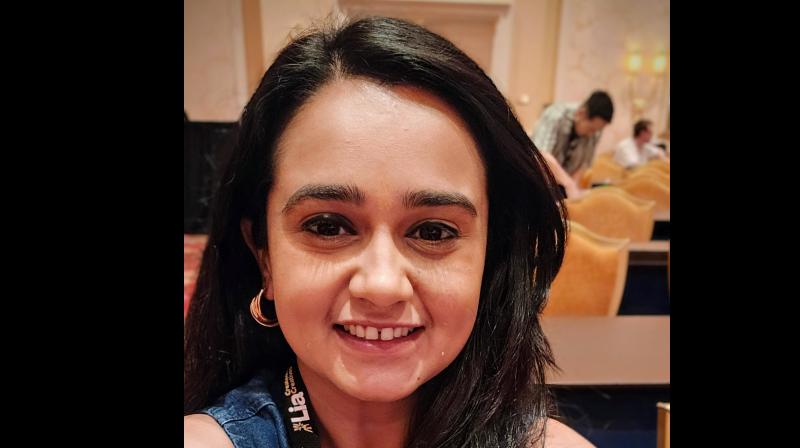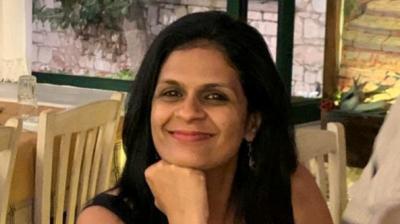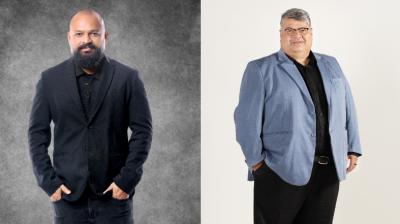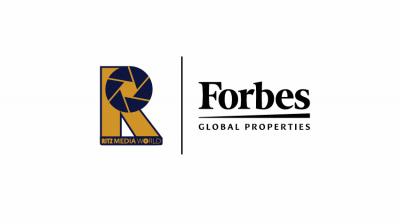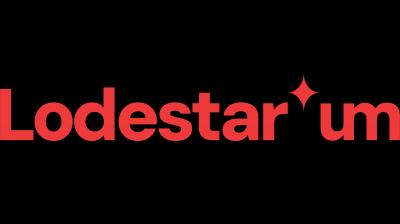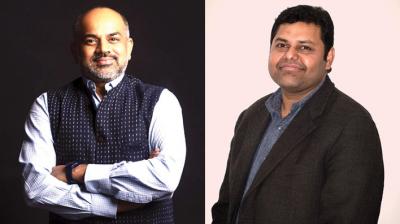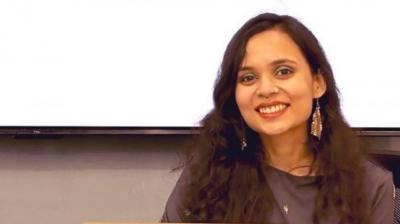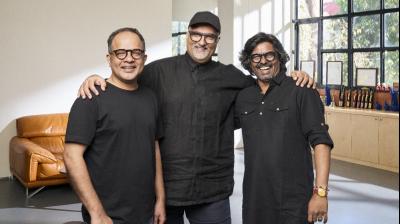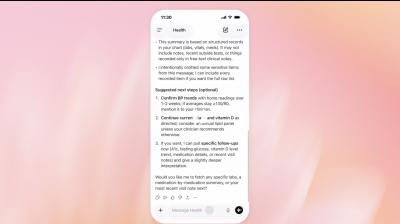There's a particular kind of nervousness that comes with realising you're about to spend five days learning from people whose work you've studied, whose campaigns you've dissected in case studies, whose names appear in the credits of ideas that changed advertising. That nervousness sat heavy in my chest as I walked into Creative LIAisons 2025 in Las Vegas.
By the time I left, that nervousness had transformed into something else entirely: clarity, conviction, and an unshakeable belief that I now understand what separates good work from great work.
Let me share what I learned.
The jury room: My unexpected masterclass
Of all the extraordinary experiences at Creative LIAions—and there were many—sitting inside the TV and Cinema and Online Film jury room was the most transformative. This wasn't watching from the sidelines. This was being in the room where it happens, where legends debate whether a film deserves Bronze, Silver, or Gold.
And what I learned there rewrote my entire understanding of creative judgment.
Lesson 1: The work that wins makes you feel something undeniable
I watched jurors review hundreds of entries. The technically perfect films that followed every rule? They often scored well but rarely sparked passion. The films that made jurors sit forward, rewind, and say "Wait, watch this part again"? Those were the ones that climbed from shortlist to Gold.
One juror said something that's now tattooed on my brain:"I don't care how polished it is if it doesn't make me feel anything." The work that sweeps people off their feet taps into something primal—humour, heartbreak, rage, joy—and does it in a way that feels fresh.
Lesson 2: Conviction changes outcomes
The most fascinating moments weren't the unanimous decisions. They were the debates. A film would get middle-of-the-road scores, then one juror would stand up and say,"No, you're missing it. Watch how they use silence here. That restraint? That's confidence. That's world-class craft."
The room would watch again. And sometimes—not always, but sometimes—minds changed. Scores moved up. A Shortlist became a Bronze. A Bronze became a Silver. Great conviction, articulated with specificity, can shift the entire trajectory of how work is perceived. As creatives, we need to learn not just to make great work, but to defend it with language that helps others see what we see.
Lesson 3: Disagreement is healthy; dismissiveness is poison
The jurors didn't always agree, but they always respected each other's perspectives. I never once heard,"That's stupid" or "You're wrong."Instead:"I see it differently" or "Help me understand what you're responding to."
This is the culture we need to build in our agencies. Where different opinions sharpen ideas rather than shut them down. Where we can say,"I don't think this is working" without making the person who created it feel like they're not working.
Lesson 4: Originality matters more than perfection
There's a tension in every jury room: Is a brilliantly executed version of something familiar more valuable than a rough-around the-edges attempt at something completely new? The LIA jurors consistently leaned toward originality. One judge put it perfectly:"I'd rather reward brave work that stumbles than safe work that doesn't even try to break new ground."
This was liberating. We spend so much time polishing, refining, perfecting—but sometimes we polish the life right out of an idea. Better to be audaciously original than perfectly derivative.
The speakers who changed how I think
Over five days (I missed day two due to a brutal fever, but powered through the rest), I heard from some of the most accomplished people in advertising. Here's what stuck with me:
Andrea Diquez: "Never stop wondering"
The global CEO, Gut opened the program with a simple directive that cut through all the complexity: never stop wondering. We get comfortable. We find formulas that work. We stop questioning everything.
But the moment you stop wondering is the moment you start repeating yourself. The best ideas come from people who still approach every brief like they're seeing it for the first time, who ask "what if?" even when everyone else thinks the answer is obvious.
Suzanne Powers: "Nobody is boring"
This hit me like a truck. Suzanne, founder and CEO, Powers Creativity, talked about inclusion and collaboration, but her point was deeper: "Nobody is boring."
Every person in your agency—from the junior intern to the finance director—has insights, experiences, and perspectives that can make your work better. But only if you're willing to notice them. Only if you ask the right questions.
I thought about all the times I'd dismissed someone's contribution too quickly or failed to probe deeper. That changes now.
Chris Smith: "Invite clients into the process"
As our moderator, Chris Smith wove his wisdom throughout the week, but one insight particularly resonated: Don't present to clients. Invite them into the creative process.
"When you perform for clients," Chris explained,"they sit back and judge. When you invite them in—when you show them how you arrived at the idea and make them part of the journey—they feel ownership. They become collaborators, not gatekeepers."
He also tackled impostor syndrome head-on, admitting that even at his level, he still feels it sometimes."If you have impostor syndrome," he said,"it means you're in the right room. Use it as your angel, not your devil."
Alexandra Taylor: "Your horror stories prove you're making something new"
Alexandra Taylor is a legend—the first woman to receive the D&AD President's Award. And she stood before us and shared her "happy horror stories": campaigns that nearly fell apart, projects that felt like disasters, moments she questioned everything.
"If you've got no industry horror stories, you're not making anything new," she told us."And if you're working from what you know, you're working backwards."
This was incredibly freeing. Every project that's kept me up at night, every pitch that felt like chaos, every moment I've questioned whether I'm cut out for this—those aren't signs of failure. They're proof I'm pushing into new territory.
Rey Tiempo: "Listen to the gamers on your team"
Rey Tiempo, CCO, Minotaur Manila, delivered an electrifying session on gamification in advertising. As someone who doesn't identify as a "gamer,"I've always felt locked out of that conversation.
But Rey said something that cracked it open:"You don't have to be a gaming expert. Listen to the Gen Z gamers on your team, even if they're juniors. They'll show you the way in."
This is about more than gaming. It's about recognising that expertise doesn't always correlate with seniority. Sometimes the youngest person in the room has the clearest window into where culture is headed.
Matt Watson: "Build the right culture first"
Matt Watson from PepsiCo Europe shared how he transformed an in-house agency from zero to "Agency of the Year" with 50+ global awards in five years. His secret?
"The work starts with the people: build the right culture, attract and nurture the right people, uphold the right principles, and make space for teams to thrive."
He added,"Sometimes you have to fake it till you make it. Even if you're not there yet, show your teams and clients what success could look like so they'll take the leap."
As someone who sometimes struggles with perfectionism and control, this hit hard. Great work requires trusting people and getting out of their way.
Susan Credle: "Don't make Sabine cry"
Susan Credle, global creative advisor, IPG, closed the program with a story that gutted me. Her friend's daughter, Sabine, would cry whenever ads interrupted her favourite TV show.
"If people don't love advertising," Susan said,"it doesn't matter if we in the business do. You're not just ad creatives. You have the power to be builders of enduring brands."
This recalibrated everything. We're not making work for award juries. We're making work for people like Sabine—real humans who just want to enjoy their media without being annoyed or manipulated.
Are we creating experiences that delight people? Or are we just adding to the noise?
The case film secrets
â—Â Plan early. Don't wait until after the campaign runs to think about the case film.
â—Â Hook them in 30 seconds. Frame your problem and idea clearly and simply right at the
start.
â—Â Highlight unexpected innovation. Show what makes this genuinely new.
â—Â Craft every detail. Sound design, pacing, visual storytelling—it all matters.
â—Â Back it with data and cultural relevance. Prove it worked and prove it mattered.
â—Â Make them feel something. Jurors sift through hundreds of case films. Yours needs to be undeniable.
Their parting advice:"Don't just tell your idea. Sell it."
The trends that signal where we are headed
One presentation explored Accenture Life Trends that are reshaping consumer behaviour:
â—Â Hesitation online: Eroding trust in digital spaces
â—Â The parent trap: Parental activism reshaping digital spaces for kids
â—Â The impatience economy: Consumers demanding instant everything
â—Â Social rewilding: People deliberately seeking real-world connection after years of digital
isolation
â—Â Proactive health and well-being: People turning to platforms for guidance and support
The "social rewilding"trend particularly resonated. As advertisers, we're so focused on conquering digital spaces that we forget the hunger for tangible, human experiences. There's opportunity in bringing people together IRL.
The CCO wisdom: Unfiltered and honest
The final session was a no-holds-barred Q&A with top CCOs: Gavin Chimes, Rob Doubal, Fura Johannesdottir, and Shayne Millington. Nothing was off-limits: their biggest mistakes,"dirty"tricks for winning pitches, staying ahead of new tools, building future-ready departments.
Key takeaways:
On great work:"The work starts with the people: build the right culture, attract and nurture the right people, uphold the right principles, and make space for teams to thrive."
On standards vs empathy: Balance high standards with knowing when to push for a perfect ten versus nudging a five to a six. Not every project needs to be a masterpiece, but every project deserves care.
On control: Empower teams to own the work instead of micromanaging. Great leaders create conditions for brilliance, they don't dictate every detail.
What I'm bringing home
I'm returning to Bengaluru with more than just notes and swag. I'm bringing back:
A recalibrated compass for evaluating work—not just my own, but the industry's. I now have the language to articulate why certain ideas soar and others sink.
Conviction—the understanding that defending your work with specificity and passion can change outcomes. But also the humility to reconsider when someone shows you something you missed.
Permission to fail boldly—because horror stories aren't warnings, they're badges of honour. They mean you're trying something new.
Connections that will last decades—with 129 other hungry, talented creatives from across the globe who now feel like family.
Renewed purpose—a reminder that this work matters. That how we show up matters. That we're not just making ads; we're shaping how millions of people experience media, culture, and life itself.
As Laurissa Levy told us on the final day:"You've had a front-row seat to some of the industry's best minds. Now take what you've learned and transform your career. Who knows? Next time you're in Vegas, you could be back as a CCO sitting on a LIA jury."
Challenge accepted.
What happened in Vegas isn't staying in Vegas. I'm taking every lesson, every conversation, every spark of inspiration back home to create work that would make even the toughest LIA jury lean forward in their seats.
And maybe, just maybe, work that would make Sabine smile instead of cry.
Tanvi Shah is a creative consultant based in Bengaluru. She was one of two winners of a competition Manifest hosted earlier this year for LIA Creative Liaisons.

.jpg)
